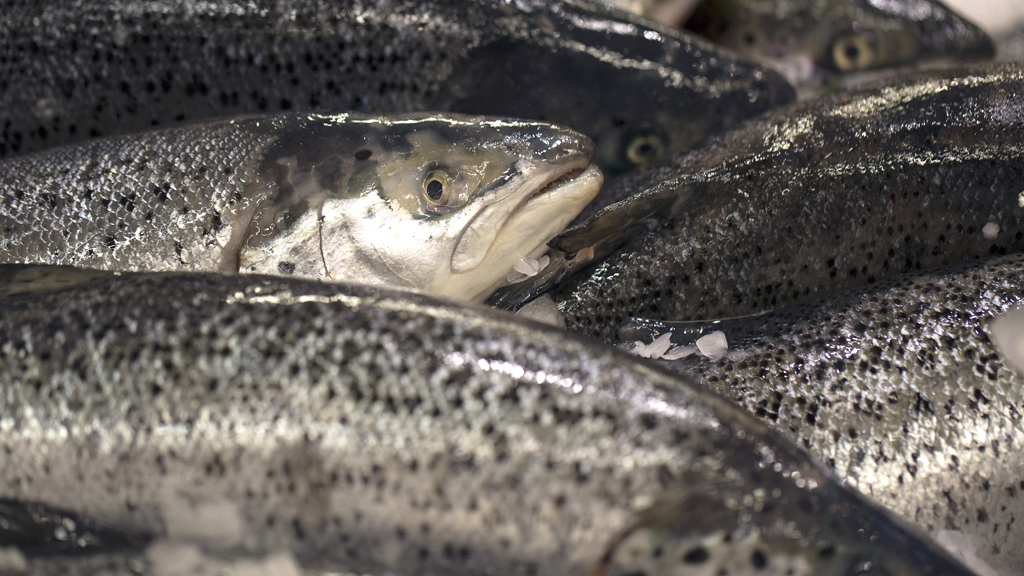Norwegian salmon make escape bid
It’s a fishy business. Thousands of farmed salmon have reportedly slipped the net (sorry) from a cage in Norway, leading to fears about the impact on the local wild salmon population.

Up to 127,000 salmon may have escaped into the wild after storm damage breached their cage at a farm in Norway owned by the huge farmed salmon producer, Marine Harvest.
Reports suggest the company has now put a bounty on the head of each escapee fish of 90 euros and asked local fishermen for help to recapture the salmon, as well as putting out nets in the area and repairing the hole which allowed the jailbreak in the first place.
A spokeswoman told Al Jazeera: “Marine Harvest takes the incident very seriously. We acknowledge that escapes can have a negative impact on wild salmon, and we have a goal of zero escapes.”
Imagine 100,000 mink escaping into the British countryside. There would be a huge outcry. Andrew Flitcroft, editor of Trout and Salmon magazine
It is thought that the salmon escaped from their massive submerged cage after stormy weather caused a hole over the weekend. Seals could also be to blame.
Marine Harvest said no fish had yet been returned and the company also does not know how many salmon may have escaped, as bad weather has prevented any counting.
Impact on wild salmon
Andrew Flitcroft, editor of Trout and Salmon magazine, said the real concern was the impact on natural salmon stocks.
“What’s frightening is the impact this amount of fish could have on natural stocks,” he told Channel 4 News. “To put this into context, imagine 100,000 mink escaping into the British countryside. There would be a huge outcry. But because these creatures are not seen and are in rivers and the sea, no-one notices.”
He said escapes were not uncommon, and stressed that the industry needed to do more to prevent them across the board, including considering moving cages on to land.
When farmed salmon escape, they can pose a threat to their wild cousins for a number of reasons, Mr Flitcroft said.
“They can interbreed with wild fish; they can spread disease picked up in salmon farms; and they can interfere and compete with breeding native fish, which are in decline. If they interbreed, they produce inferior offspring which don’t survive as much as natural fish,” he said.
Farmed salmon are often bigger than wild, meaning they can be more likely to survive and breed than the wild fish; on the other hand, they are less aware of predators, meaning that overall stocks can be hit by escapes as the farmed salmon become easy prey.
And Mr Flitcroft doesn’t hold out much hope of local fishermen finding the salmon and helping Marine Harvest cope with the problem.
“For them to offer a reward to local fishermen is absolutely absurd,” he said. “The chances of fishermen catching one of these fish is very slim.”
-
Latest news
-
Laughing Boy: New play tells the tragic tale of Connor Sparrowhawk5m

-
Sewage warning system allows some of worst test results to be left off rating system, analysis shows3m

-
Post Office inquiry: Former CEO didn’t like word “bugs” to refer to faulty IT system4m

-
Israeli soldier speaks out on war in Gaza12m

-
PM’s defence spending boost should be ‘celebrated’, says former Armed Forces Minister4m

-




